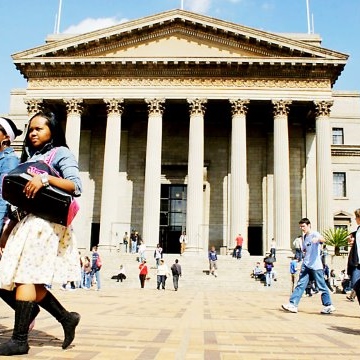
News

Wits SRC calls for postponement of exams over suicide rate
JORDAN MOSHE
“Mental-health issues have plagued the student body for the most part, but it is not a coincidence that this exam period is seeing the highest suicide rates and attempts,” wrote SRC President Sisanda Aluta Mbolekwa on Facebook when the university turned its call down.
“Ours was to respond to the immediate crisis and seek to prevent a further loss of life. Management met this morning, and unfortunately did not grant our request for a postponement, due to many reasons that they are yet to disclose to us.”
With final examinations looming, South African universities are witnessing a dramatic spike in students taking their own lives in the face of severe depression and stress. With students expressing frustration over a perceived lack of support from university management, the need to address the issue has seemingly become more pressing than ever.
After two suicides at Wits earlier this year, last Wednesday, Mpumelelo Tshabalala jumped from a building in the Johannesburg CBD, and another student was rushed to hospital after attempting to end her life by jumping from the university residence at City Junction – reportedly within 24 hours of each other. Wits is certainly not alone in this regard, with 23 attempted suicides being recorded at the University of Pretoria this year alone.
The situation has resulted in a call by Wits students for greater support from the university, saying that the current programme offered by the institution’s Counselling and Careers Development Unit (CCDU) is not enough.
The SRC has also proposed a number of concessions, including applications for deferred exams, the availability of psychologists for consultation, and the hosting of various talks and sessions geared towards dealing with stress and anxiety.
University management said it had received more than 200 comments on this issue, as well as a range of suggestions and recommendation about how it could be addressed.
Management said it was aware of the stress experienced by students, and listed the measures put in place on campus, including an increase in the availability of counsellors at the CCDU over the exam period, the convention of a specialist group to advise on improving the university’s approach to the issue, and allowing exam deferment by individual students.
It could not postpone exams, as this would have an impact on “marking processes; external examination schedules; the dates for deferred exams; venue availability; accommodation – especially students residing off campus who may incur additional expenses; and arrangements made by international students”.
Responding to the problem, psychologist Dana Labe said that the stress students face is always a combination of real and self-imposed pressure. “Pressure produces anxiety, and the feeling of not meeting standards,” she says. “This produces despair. Suicidal thought is always a possible solution to this conundrum. When added to a history of family instability, mental illness, and possible trauma, the possibility of completed suicide is heightened.”
She said it could be subtle at first. “It is important to recognise that often there are no obvious signs of suicidal intentions. There is sometimes nothing that can be done or could have been done to prevent suicide.” Regardless, she says, families should always be on the alert for excessive withdrawal, irritability, or sadness.
“If one suspects a student is suicidal, ask directly, and get help. It is important that if a person feels suicidal, they have access to a loving support system. Fostering good communication and relationships is protective against depression, and can provide a lifeline for suicidal people.”
The need for such support to come from the home environment is crucial, particularly because there is little chance of the university lending additional assistance.
Said Labe, “The universities are cash strapped, and their psychosocial services are overstretched. The academic-support services have largely changed focus from student mentoring to training staff to teach more effectively. Having said this, I don’t think that it is the primary duty of the universities to provide support and psychosocial care. The paucity of state mental-health services is a huge problem. Services in the private sector are available, but costly. The medical aids vary in their responsiveness to mental health issues.”
Dr Yael Kadish, principal psychologist at Tara psychiatric hospital in Johannesburg, said these issues had different causes at various levels of society. For middle class South Africans, parental expectations might be internalised in such a way that failing, or even not getting a distinction, is experienced as an utterly unthinkable, catastrophic situation. “Too much pressure is being put on all our children to achieve academically, and then to choose high status, high-income careers, regardless of their passions and interests,” she said. “This rubric is being sold as the only and true pathway to a happy life”.
Recent student suicides and breakdowns are merely the tip of the iceberg, she said, alerting us to a more insidious global malaise of mental illness. If it is to be addressed, she said, there needs to be far more emphasis on the importance of good-enough parenting, starting at a school level.
“There needs to be far more parenting courses offered. Each school should employ two mental health workers per grade. And yes, the universities should have much bigger, more developed, and better-resourced psychological services.”




